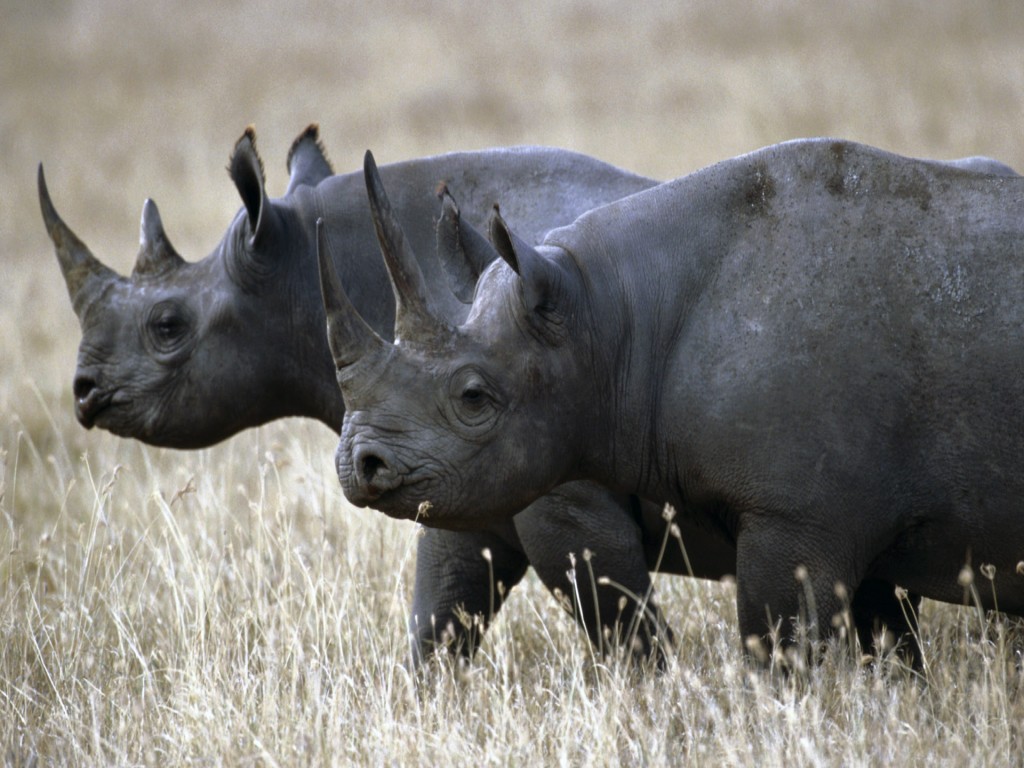Although progress has been made in combating crimes affecting rhinoceroses, poaching and trafficking continue to represent a significant threat to their populations. These crimes are largely driven by the demand for rhinoceros horn in illegal markets and further exacerbated by the involvement of transnational organised crime groups, which makes addressing these crimes increasingly complex.

Traffickers exploit weaknesses in border controls, corruption, and enforcement gaps and use violence or threats of violence to achieve their goals – often moving specimens through complex international routes. Rhinoceros horn seizures over the last decade have also revealed shifting trends in illegal trade, with new trafficking hotspots emerging as criminals adapt their strategies to avoid detection.
Coordinated international enforcement is critical to respond to these ongoing threats from poaching and trafficking. In support of this, the Secretariat of the Convention on International Trade in Endangered Species of Wild Fauna and Flora (CITES), in collaboration with the Department of Forestry, Fisheries and the Environment of South Africa, convened a Rhinoceros Enforcement Task Force meeting. The five-day meeting brought together 70 participants, including national CITES authorities, wildlife officers, Customs, police and others from 21 countries from May 26 to 30, 2025 in Pretoria, South Africa, the country which is home to the world’s largest population of rhinoceroses.
Convening this Task Force meeting was possible thanks to financial support from the European Union, South Africa and Switzerland, and a financial contribution to the International Consortium on Combating Wildlife Crime (ICCWC) by the United Kingdom of Great Britain and Northern Ireland.
Representatives from law enforcement and other governmental agencies, along with ICCWC partner agencies, a range of international experts, inter-governmental and non-governmental organisations, worked to develop strategies to further strengthen responses to address rhinoceros poaching and rhinoceros specimen trafficking.
“This year as we mark 50 years since CITES entered into force in 1975, we are reminded that the fight against rhino poaching and trafficking cannot be won in isolation,” said Ivonne Higuero, CITES Secretary-General. “It demands deep collaboration across countries and sectors. Enforcement must be intelligent, adaptive and relentless – and that’s exactly what this Task Force is designed to support.”
The Task Force meeting tackled matters related to rhinoceros poaching and trafficking head on, as participants shared first-hand experiences, analysed recent trends and discussed enforcement challenges and best practices. The meeting featured a series of thematic sessions covering international and regional cooperation, case investigation and prosecution, risk management practices, the use of forensic applications, addressing illicit financial flows and mobilizing financial crime investigations, as well as demand reduction approaches.
“As a country on the front line of rhino conservation, South Africa is committed to building stronger enforcement networks across borders through collaboration and innovation. We are also progressing a number of Memoranda of Understanding with destination countries to form a firm basis for this continued collaboration. We are very alive to the fact that no one country can take on this massive task alone, and the important connections delegates have made during this Task Force Meeting will directly contribute to protection of our global rhino populations across Africa and Asia,” said Dr Dion George, Minister of Forestry, Fisheries & the Environment.
The meeting further provided an opportunity for representatives to directly engage with their counterparts from other countries, forge new professional relationships and further strengthen existing ones – fostering joint collaborative action.
Convened in accordance with a Decision adopted by the Conference of the Parties to CITES at its 19th meeting (CITES CoP19) in Panama City, 2022, the meeting concluded with the consolidation and agreement of proposed strategies and follow-up actions to guide future work to address crimes affecting rhinoceroses.
The Task Force meeting agreed on measures and activities to:
- Strengthen national-, regional- and international-level collaboration, including through stronger bilateral engagement using new or existing platforms to facilitate this;
- Improve the sharing of information, including on seized specimens, to assist Parties affected by crimes involving rhinoceros to identify, locate and prosecute the offenders involved;
- Strengthen the use of forensic applications in the fight against rhinoceros poaching and trafficking;
- Put in place or draw upon existing legislation so that wildlife crime, including crimes that involve rhinoceros specimens, are treated as serious, allowing for the use of specialised investigation techniques to address them and making provisions for strong deterrent penalties against offenders;
- Work with the judiciary to increase awareness regarding the serious nature of wildlife crime, including crimes involving rhinoceroses;
- Promote the presentation of evidence in judicial processes to highlight factors that make the crime more deserving of harsher penalties;
- Promote penalties that provide for restitution of environmental damage and the recovery of costs incurred by the investigation and prosecution;
- Increase sharing of information on investigation methodologies, tools and best practices regarding crimes affecting rhinoceroses among authorities responsible for addressing these crimes;
- Promote increased use of tools and capabilities available through INTERPOL and the World Customs Organisation, including tools such as the INTERPOL Silver Notice designed to assist in locating, identifying and obtaining information about criminal assets, such as properties, vehicles, financial accounts and businesses linked to illicit activities;
- Engage the private sector, including the banking sector to facilitate strengthened responses and collaborative action to address illicit financial flows associated with wildlife crime, in particular crimes associated with rhinoceroses;
- Develop and implement strategies to counter corruption, including corruption prevention policies and whistle blower policies;
- Strengthen collaboration with civil society organisations and research institutions to improve understanding about high-priority areas to address regarding demand for illegal rhinoceros’ specimens; and
- Encourage financial and technical support where needed, for the implementation of the measures and activities agreed by the Task Force.
As the Convention gears up for the 20th meeting of the Conference of the Parties to CITES (CoP20) in Samarkand, Uzbekistan (November 24 to December 5, 2025), the outcomes and agreed actions from the Rhinoceros Enforcement Task Force meeting will guide Parties in enhancing their responses to poaching and trafficking affecting rhinoceros’ species.
